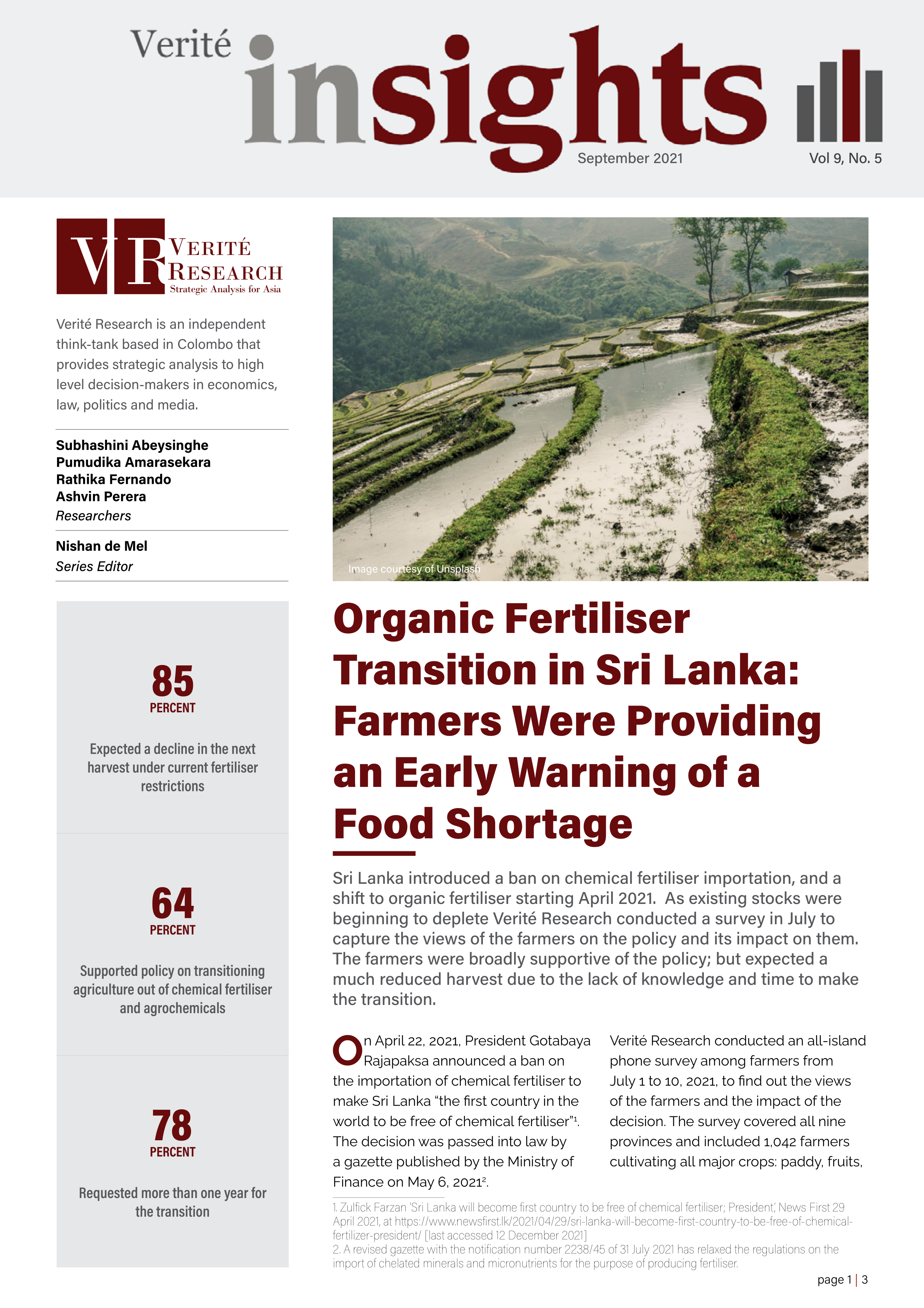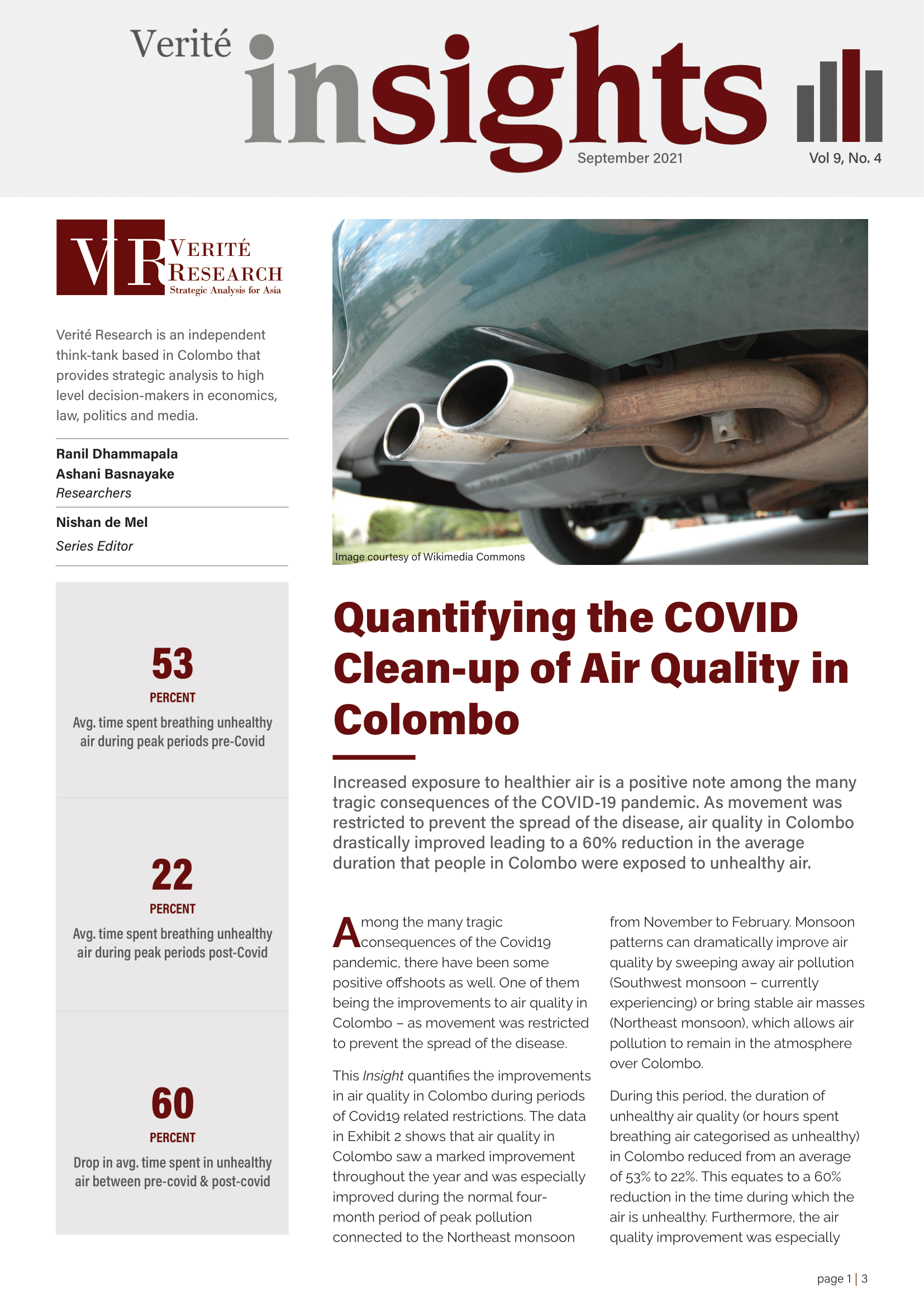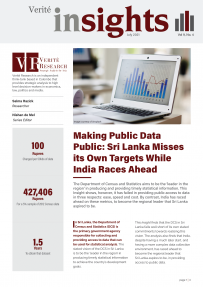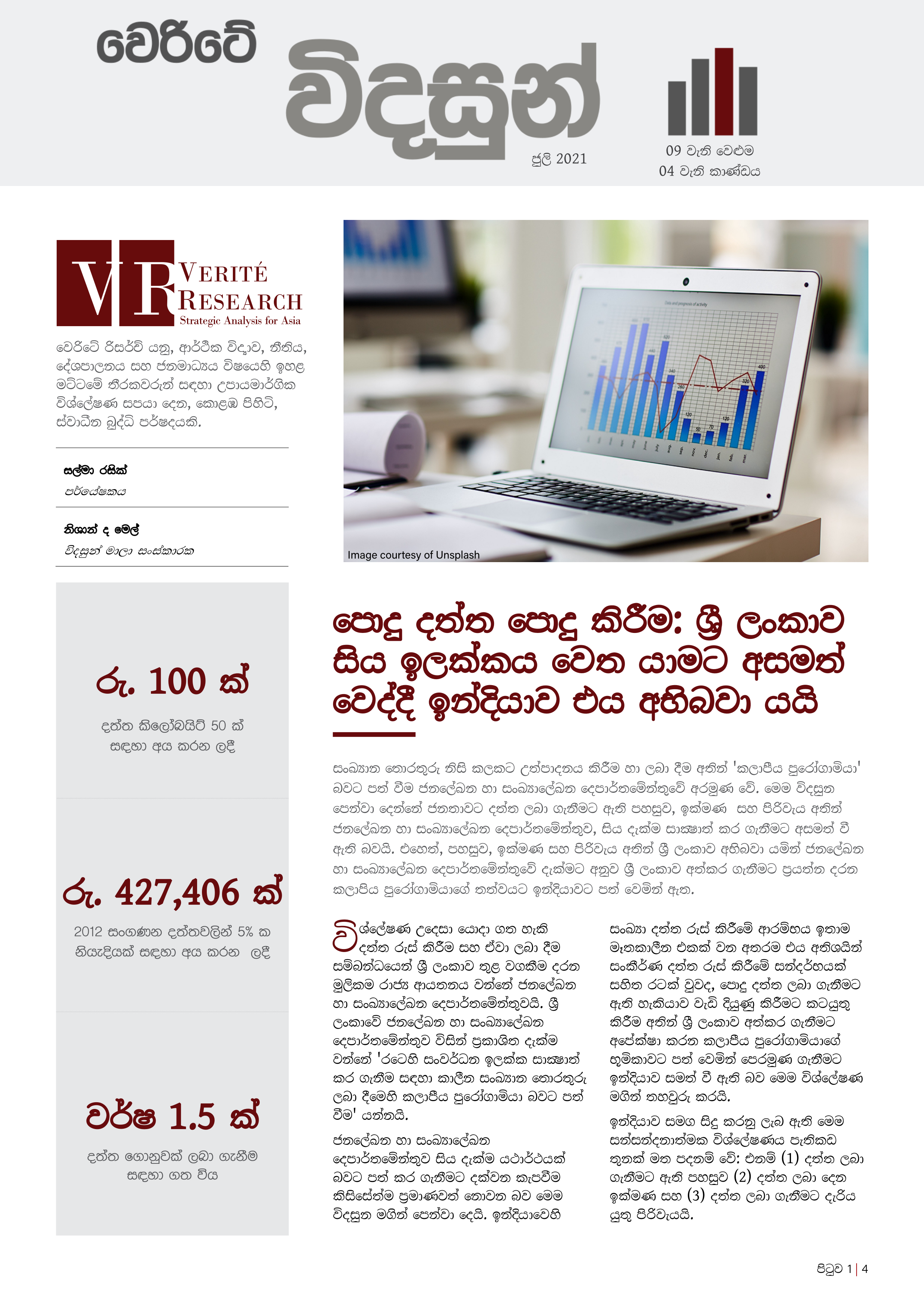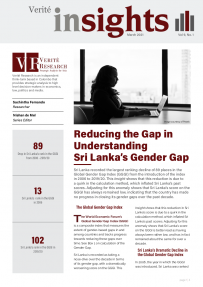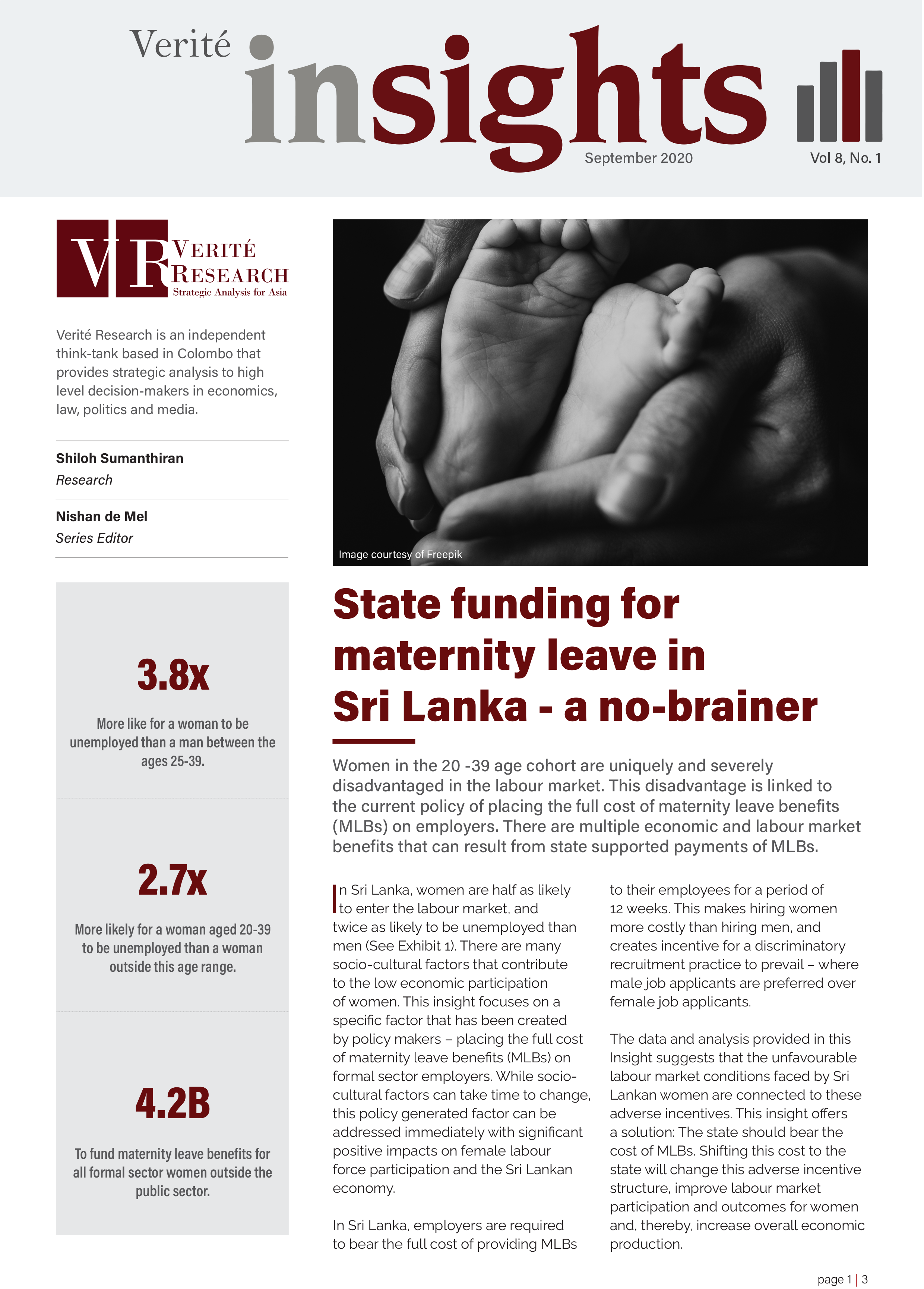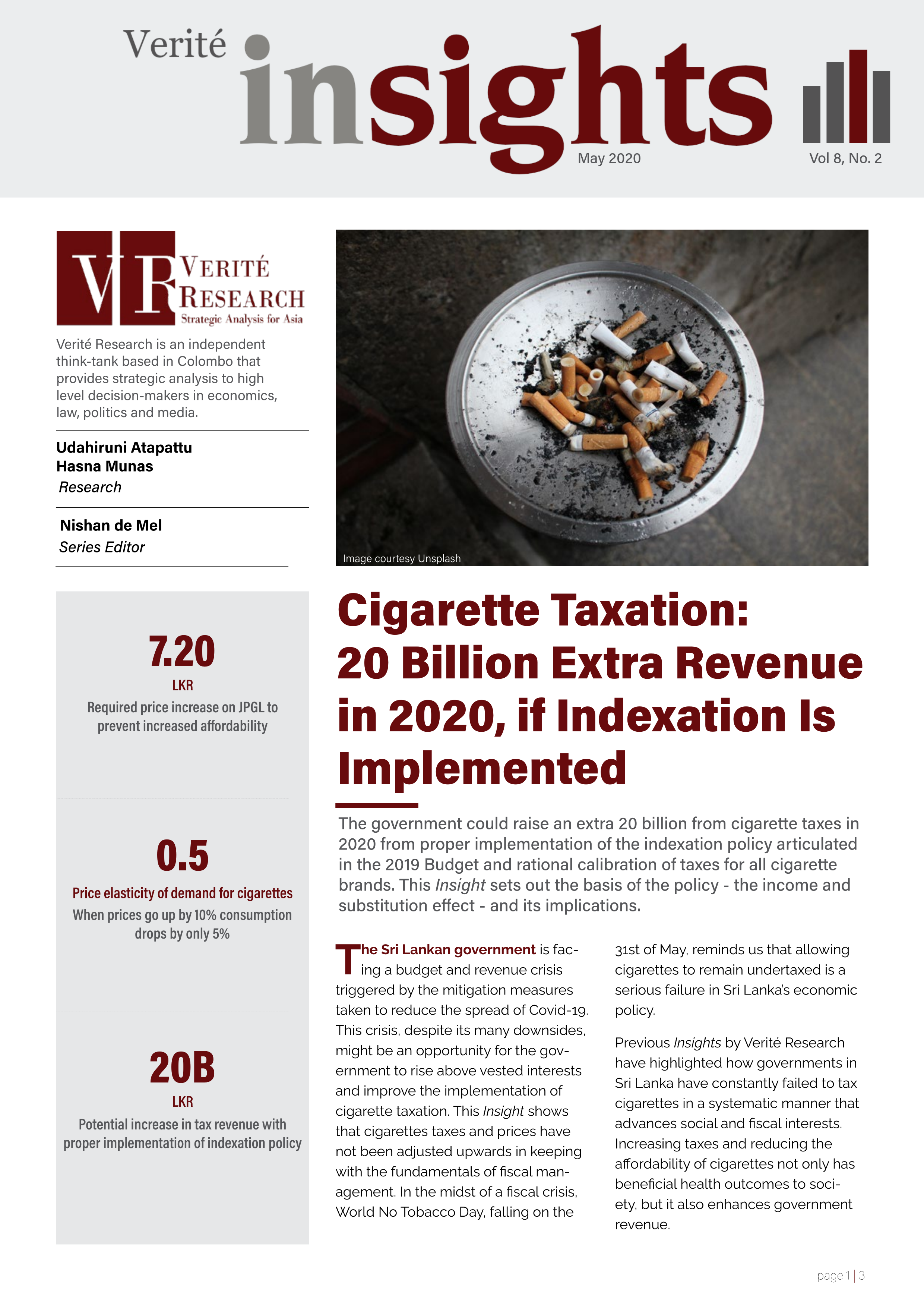Sri Lanka introduced a ban on chemical fertiliser importation, and a shift to organic fertiliser starting April 2021. As existing stocks were beginning to deplete Verité Research conducted a survey in July to capture the views of the farmers on the policy and its impact on them. The farmers were broadly supportive of the policy; but expected a much reduced harvest due to the lack of knowledge and time to make the transition.
Increased exposure to healthier air is a positive note among the many tragic consequences of the COVID-19 pandemic. As movement was restricted to prevent the spread of the disease, air quality in Colombo drastically improved leading to a 60% reduction in the average duration that people in Colombo were exposed to unhealthy air.
Sri Lanka’s Department of Census and Statistics (DCS) is the primary government agency responsible for collecting data, producing useful statistics, and disseminating it.
සංඛ්යාන තොරතුරු නිසි කලකට උත්පාදනය කිරීම හා ලබා දීම අතින් ‘කලාපීය පුරෝගාමියා’ බවට පත් වීම ජනලේඛන හා සංඛ්යාලේඛන දෙපාර්තමේන්තුවේ අරමුණ වේ. මෙම විදසුන පෙන්වා දෙන්නේ ජනතාවට දත්ත ලබා ගැනීමට ඇති පහසුව, ඉක්මණ සහ පිරිවැය අතින් ජනලේඛන හා සංඛ්යාලේඛන දෙපාර්තමේන්තුව, සිය දැක්ම සාක්ෂාත් කර ගැනීමට අසමත් වී ඇති බවයි. එහෙත්, පහසුව, ඉක්මණ සහ පිරිවැය අතින් ශ්රී ලංකාව අභිබවා යමින් ජනලේඛන හා සංඛ්යාලේඛන දෙපාර්තමේන්තුවේ දැක්මට අනුව ශ්රී ලංකාව අත්කර ගැනීමට ප්රයත්න දරන කලාපිය පුරෝගාමියාගේ තත්වයට ඉන්දියාවට පත් වෙමින් ඇත.
ජාත්යන්තර වෙළඳ දත්ත පොදු දේපලකි. සැබෑ කරුණු මත පදනම් වූ ප්රතිපත්ති සැලසුම් කිරීමට, ව්යාපාරවලට වඩාත් නිවැරදි තීරණ ගැනීමට, ආර්ථික හා සමාජීය කරුණු පිළිබඳ මහජන පර්යේෂණ සඳහා පෙළඹවීමට සහ ජනතාවට රජයේ වගවීම වැඩි දියුණු කිරීමට දත්ත සඳහා ප්රවේශය අත්යවශ්ය වේ. එහෙත්, ශ්රී ලංකා රේගුවේ දත්ත බෙදා හැරීමේ ප්රතිපත්තිය දත්ත පොදු භාණ්ඩ ලෙස දැකීමට පටහැනි ආකාරයෙන් සකස් වී ඇත. කලාපීය හා ගෝලීය ප්රවණතාව වන්නේ මෙම දත්ත වලට ඇති ප්රවේශය පහසු කිරීම වුව ද, ලංකාව සම්බන්ධයෙන් යාවත්කාලීන දත්ත සොයා ගැනීම පහසු නොවන අතරම ඒවා නොමිලයේ ලබා ගත නොහැක.
International trade data is a public good. Yet, SLC’s data dissemination policy is currently at odds with seeing the trade data it collects as a public good.
Sri Lanka recorded the largest ranking decline of 89 places in the Global Gender Gap Index (GGGI) from its introduction in 2006 to 2019/20.
The pricing data of media institutions reveals that the media discriminates against the democratic process by charging higher rates for political ads than commercial ads, during election periods.
Women in the 20-39 age cohort are uniquely and severely disadvantaged in the labour market in Sri Lanka. This disadvantage is linked to the current policy of placing the full cost of maternity leave benefits (MLBs) on employers.
The Government could raise an extra Rs. 20 Billion from cigarette taxation in 2020 from the proper implementation of the indexation policy articulated in the 2019 Budget and rational calibration of taxes for all cigarette brands.
